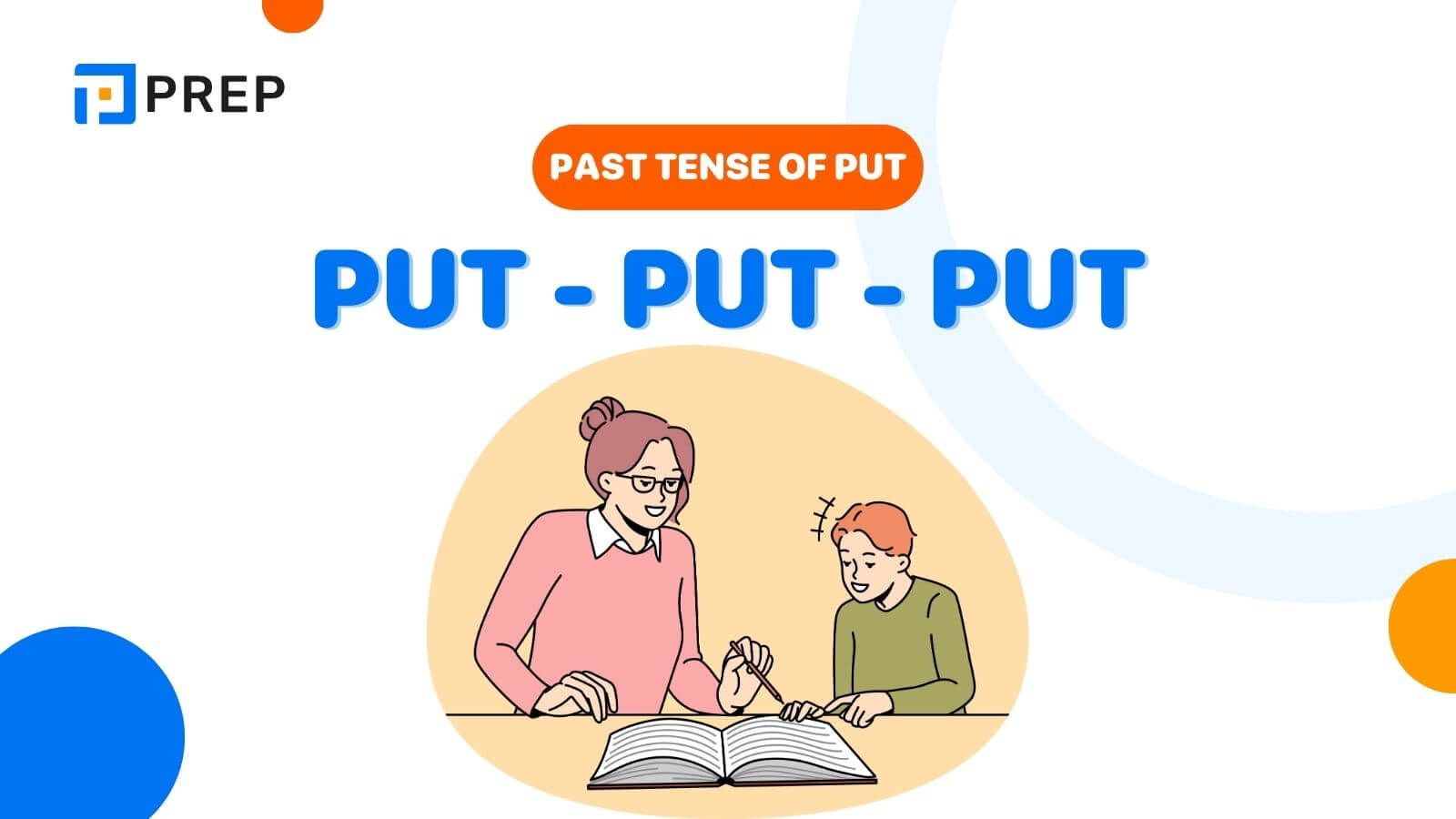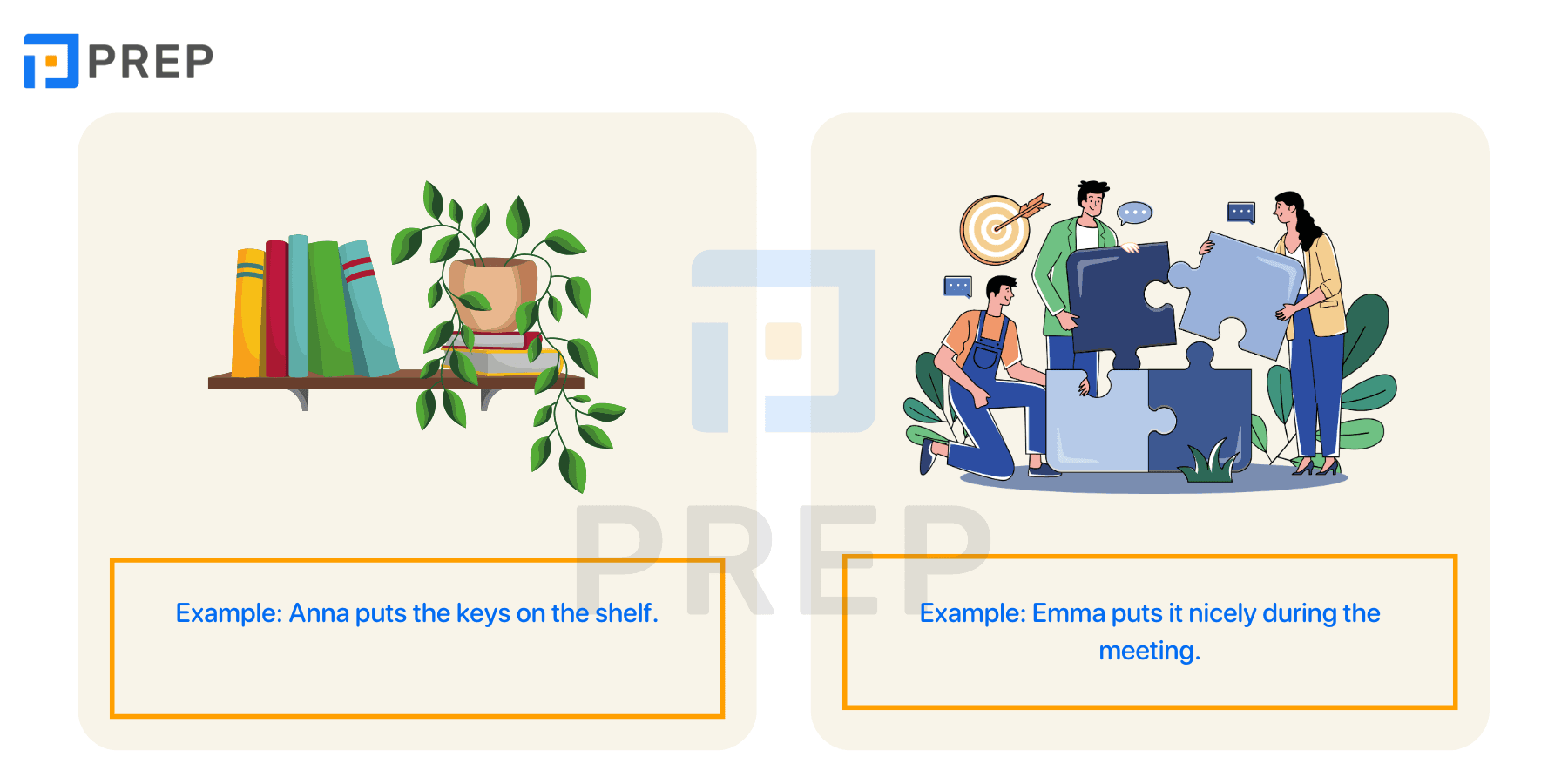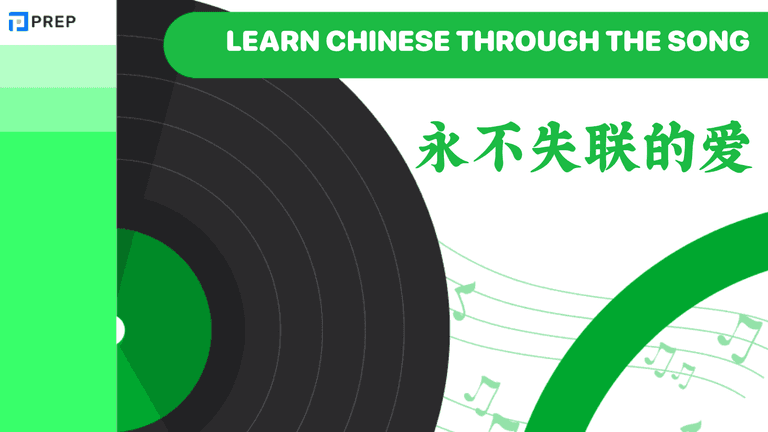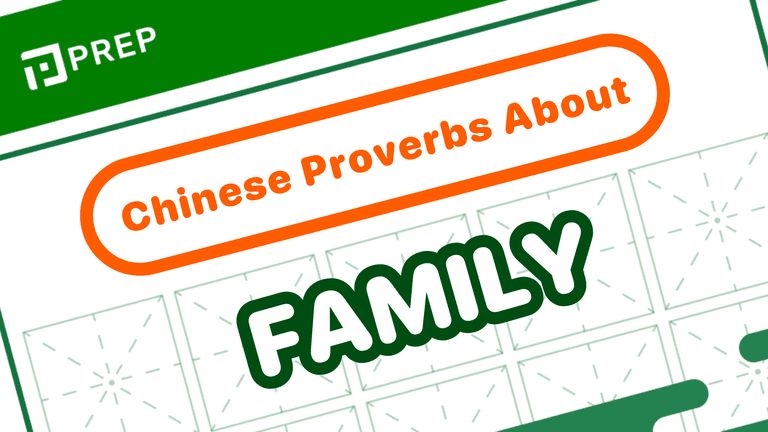Past tense of Put: Complete Conjugation Guide & Usage Examples
Understanding the past tense of Put represents a fundamental milestone in English grammar mastery, as this irregular verb appears frequently across all communication contexts. The past tense of Put follows unique conjugation patterns that distinguish it from regular verbs, requiring specific attention to achieve accurate usage. This comprehensive exploration examines the past tense of Put alongside its complete conjugation system, providing practical examples and usage guidelines for learners at every proficiency level.

I. What is Put?
Put is pronounced /pʊt/ and serves as a verb with several meanings, such as:
|
Meaning |
Example |
|
to place something in a particular position or location. |
Anna puts the keys on the shelf. |
|
to wear or don (an article of clothing) |
John puts on his coat before leaving. |
|
to cause something to be in a particular state or condition |
David's comment puts Sarah in a good mood. |
|
to express or articulate something in speech or writing |
Emma puts it nicely during the meeting. |
|
to present an idea, suggestion, or proposal |
Michael puts forward a new idea for the project. |

II. What are V0, V2, V3 of Put? The Past Tense of Put in English
Put follows an irregular verb pattern. V0, V2, V3 stand for: Infinitive, Past Simple, and Past Participle. Here are its three main forms:
|
Part of speech |
Example |
|
|
V0 |
Put(s) /pʊt/ |
Lisa puts her phone on the desk every morning. |
|
V2 |
Put /pʊt/ |
Lisa put her phone on the desk yesterday. |
|
V3 |
Put /pʊt/ |
Lisa has put her phone on the desk. |
III. How to Conjugate the Verb Put
What is the past tense of Put? How is the verb Put conjugated in 12 tenses in English and in special structures? Let’s explore it right below!
1. In the Tenses
|
12 tenses in English |
I |
He/She/It |
We/You/They |
|
Present simple tense |
put |
puts |
put |
|
|||
|
Present progressive tense |
am putting |
is putting |
are putting |
|
|||
|
Present perfect tense |
have put |
has put |
have put |
|
|||
|
Present perfect progressive tense |
have been putting |
has been putting |
have been putting |
|
|||
|
Past simple tense |
put |
put |
put |
|
|||
|
Past progressive tense |
was putting |
was putting |
were putting |
|
|||
|
Past perfect tense |
had put |
had put |
had put |
|
|||
|
Past perfect progressive tense |
had been putting |
had been putting |
had been putting |
|
|||
|
Future simple tense |
will put |
will put |
will put |
|
|||
|
Future progressive tense |
will be putting |
will be putting |
will be putting |
|
|||
|
Future perfect tense |
will have put |
will have put |
will have put |
|
|||
|
Future perfect progressive tense |
will have been putting |
will have been putting |
will have been putting |
|
|||
2. In special sentence structures
|
Special Structure |
I |
He/She/It |
We/You/They |
|
Conditional Sentences |
|||
|
Second conditional - Main Clause |
would put |
would put |
would put |
|
|||
|
Third conditional - Main Clause |
would have put |
would have put |
would have put |
|
|||
|
Subjunctive Mood |
|||
|
Subjunctive expressing present situation |
put |
put |
put |
|
Subjunctive expressing present situation |
would put |
would put |
would put |
|
Subjunctive expressing past situation contrary to fact |
would have put |
would have put |
would have put |
|
Example |
|
||
IV. Phrasal Verbs with "Put" in English
These common phrasal verbs with "Put" appear frequently in everyday English. Master their meanings for natural communication:
|
Phrasal verb with Put |
Meaning |
Example |
|
Put something across |
to present or explain an idea or information clearly. |
Anna put her ideas across very effectively during the meeting. |
|
Put aside something |
to save or reserve something for a particular purpose; to set something down for later consideration. |
John decided to put aside some money every month for his vacation. |
|
Put away something |
to store or arrange something in its proper place. |
Sarah put away all the dishes after dinner. |
|
Put away someone |
to imprison someone. |
The police finally put away the notorious criminal after years of investigation. |
|
Put back something |
to return something to its original place or position |
Emma put back the book on the shelf after reading it. |

V. Idioms with Put in English
In addition to the knowledge about the past tense of "put" mentioned above, let’s explore some idioms with "put" in English below!
|
Idioms with Put |
Meaning |
Example |
|
Put a damper on something |
to reduce the enjoyment or excitement of something; to spoil an event |
The sudden rainstorm put a damper on Emma's outdoor wedding plans. |
|
Put an end to something |
to bring something to a conclusion; to stop something from continuing |
David decided to put an end to the argument before it got out of hand. |
|
Put down roots |
to settle down and establish a permanent residence in a particular place |
After years of traveling, Sarah finally put down roots in New York City. |
|
Put your feet up |
to relax and rest, usually by sitting down and elevating your feet |
After a long day at work, John likes to put his feet up and watch TV. |
|
Put your finger on something |
to identify or recognize something precisely, especially when it is difficult to understand. |
Michael couldn’t put his finger on what was bothering him, but he knew something was wrong. |
VI. Exercises on Conjugating the Verb Put with Answers
Practice these exercises to reinforce your understanding of "Put" conjugations and phrasal verbs:
1. Exercises
Exercise 1: Conjugate the verb "put" in the parentheses.
-
If Emi (put) ____ the documents in the right folder, we wouldn’t have lost them.
-
They (put) ____ the new policy into effect next week.
-
By the time you arrive, I (put) ____ everything away.
-
Jack (put) ____ the book back on the shelf yesterday.
-
If I were in your position, I (put) ____ more effort into the project
Exercise 2: Fill in the blanks with the correct form of the verb "put."
-
Susan has been working on the report for hours; she finally managed to __________ it together.
-
If John __________ more thought into the plan, it might have been successful.
-
They __________ the schedule back by one week due to unforeseen delays.
-
By the end of the day, we will have __________ all the files in the correct folders.
-
I will __________ the groceries away after I unpack them from the car.
2. Answer keys
|
Exercise 1 |
Exercise 2 |
|
|
Mastering the past tense of Put requires understanding its irregular nature and practicing correct usage across diverse contexts. The frequency of this verb in English makes accurate conjugation essential for effective communication. Success with the past tense of Put reflects broader irregular verb mastery and demonstrates sophisticated English grammar knowledge. Focus on contextual usage rather than isolated memorization for lasting comprehension and natural application.

Hi I'm Chloe, and I am currently serving as an Product Content Administrator at Prep Education. With over five years of experience in independent online IELTS study and exam preparation, I am confident in my ability to support learners in achieving their highest possible scores.
Comment
Premium content
View allPersonalized roadmap
Most read












